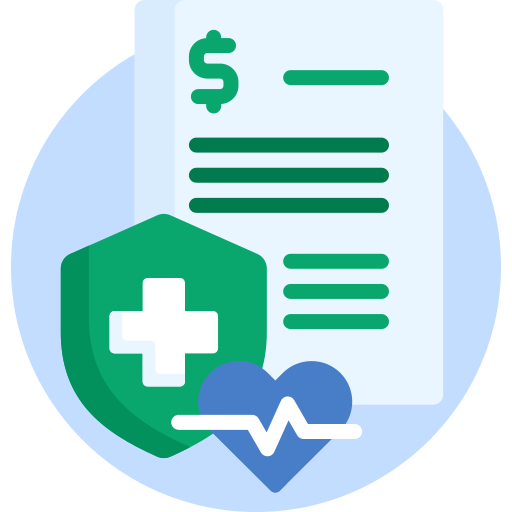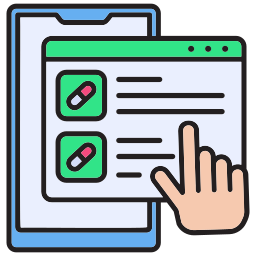The healthcare system has made remarkable strides in enhancing its ability to provide quality healthcare integration for all.
With each challenge comes the opportunity for innovative solutions, and healthcare integration is a major focus area.
Healthcare integration simply means ensuring that electronic health data can be accessed, connected and used securely and efficiently.
The current challenge - In the US alone, the healthcare system experiences significant losses due to fragmented and unstructured data.
As reported by the ONC (National Coordinator for Health Information Technology), almost half of the hospitals (48%) suffer from one-sided data exchange. They share patient data with other providers but don't receive it back.
Enter HealthConnect - a healthcare interoperability solution designed to tackle these challenges head-on. HealthConnect integrates fragmented data while maintaining HIPAA Compliance and FHIR Standard.

HealthConnect promotes better care coordination, improves efficiency, enhances patient outcomes, and offers informed decision-making among healthcare providers.
What is the purpose of healthcare integration?
Integration in healthcare serves several purposes, including:
Streamlining Patient Care: Integration ensures that patient information is readily accessible to healthcare providers, allowing for more efficient and coordinated care delivery.
Improving Communication: Integrating different healthcare systems and technologies smooths communication among healthcare professionals, reducing errors and improving patient safety.
Enhancing Efficiency: Integration automates processes, reduces duplication of efforts, and eliminates manual tasks, leading to increased efficiency and productivity within healthcare organizations.
Facilitating Data Sharing: Integration enables the seamless exchange of patient data among various healthcare entities, fostering collaboration and improving decision-making.
Supporting Patient Engagement: Integrated systems can provide patients with access to their health information, appointment scheduling, and communication with healthcare providers, empowering them to take an active role in their healthcare journey.
Overall, integration in healthcare aims to create a connected ecosystem that optimizes patient care, enhances efficiency, and improves outcomes for both patients and healthcare providers.
What if the data is not properly integrated
Inadequate data integration in healthcare systems can have far-reaching consequences, which include:
HIPAA Fines: Hospitals failing to comply with HIPAA regulations due to inadequate data integration may face hefty fines and legal consequences, further straining resources and reputation.
Patient Losses: Patients may experience loss of time, incur additional costs, and in severe cases, face life-threatening situations due to fragmented care resulting from poor data integration.
Provider Constraints: Inefficient data integration may limit healthcare providers' ability to dedicate sufficient time to patient care, impacting the quality and effectiveness of interactions with patients.
Data Security Risks: Poor integration increases the risk of data breaches and privacy violations, as disparate systems may not have robust security measures to protect sensitive patient information.
System-wide Impacts: The healthcare system suffers losses when data fails to communicate in sync, leading to disruptions in care coordination, resource allocation, and overall system performance.
How HealthConnect bridges the gaps in Healthcare Integration
Our expert team handles all technical aspects to integrate HealthConnect with your existing tech stack seamlessly.

EHR Integration
Electronic Health Records (EHR) integration enables medical records to be seamlessly accessed across different software solutions.
We integrate EHRs from leading systems such as Cerner, Epic, and Meditech using HL7 V2 APIs and FHIR APIs.

Some of our EHR Use Cases
Payer Side
Value-Based Care Alignment
Payers incentivize providers to deliver high-quality, cost-effective care by aligning reimbursement with patient outcomes, satisfaction scores, and adherence to evidence-based guidelines. Leveraging data from EHR systems enables payers to accurately measure provider performance and ensure value-based care delivery.
Fraud Detection and Claims Processing
Payers employ advanced data analytics and machine learning algorithms to detect fraudulent claims, identify patterns of abuse or overutilization, and streamline claims processing. This proactive approach enhances operational efficiency, reduces financial losses, and ensures the integrity of the reimbursement process.
Provider Side
Remote Patient Monitoring (RPM)
Healthcare providers utilize wearable devices to remotely track patients' vital signs and health data. This proactive approach allows for early intervention and effective management of chronic conditions, ensuring optimal patient care.
Telemedicine and Virtual Consultations
Healthcare professionals conduct virtual consultations with patients, leveraging their EHR data to inform diagnosis and treatment decisions. By ensuring secure communication and information exchange, telemedicine offers convenient and accessible healthcare services while maintaining patient confidentiality and privacy.
Patient Side
Access to Personal Health Records (PHR)
Patients can securely access their Electronic Health Record (EHR) data, which includes medical history, test results, and treatment plans. This empowers individuals to actively engage in healthcare decisions and take charge of their well-being.
Remote Monitoring and Self-Tracking:
Patients can monitor their health metrics, track symptoms, and share outcomes with healthcare providers through wearable devices and mobile health apps. This promotes self-awareness and active participation in managing their health journey.
Read more about EHR Integration, its use cases, features, and challenges
Wearable Integration
WearConnect Integrates with 300+ Activity Trackers & Apps to leverage structured data and analyze user metrics to provide actionable insights.

We integrate wearable devices with healthcare systems to enable seamless monitoring of patient's health metrics and activities.
Some of our WearConnect Use Cases
Payer Side
Wellness Programs
Insurance companies can encourage policyholders to use wearable devices to monitor their health metrics. By offering rewards or discounts for meeting fitness goals or maintaining healthy habits, insurers promote a healthier lifestyle among members.
Chronic Disease Management
Wearable data aids payers in managing chronic illnesses more efficiently by remotely tracking patients' vital signs, medication adherence, and lifestyle habits. Early detection of issues enables timely interventions, preventing complications and hospital admissions.
Provider Side
Remote Patient Monitoring
Healthcare providers utilize wearable devices to remotely track patients' health status. They can monitor vital signs, activity levels, and medication adherence in real time, enabling early intervention in case of deviations from normal.
Post-Operative Care
Wearables are valuable tools for monitoring patients' recovery progress following surgeries or medical procedures. Providers can track healing indicators, detect complications early, and adjust treatment plans as needed, enhancing recovery outcomes.
Patient Side
Fitness Tracking
Patients utilize wearables to track their physical activity, sleep patterns, and overall fitness levels. Individuals can monitor progress and maintain an active and healthy lifestyle with personalized goals and motivational feedback.
Chronic Condition Management
Wearables play a crucial role in managing chronic conditions like diabetes or hypertension. Continuous monitoring of health parameters allows patients to share data with healthcare providers for personalized treatment plans and remote monitoring, ensuring better disease management.
Read more about Wearable Integration, its features, and challenges
Experience the future of healthcare integration with HealthConnect Demo
HealthConnect Admin Tools

Dashboard - Your centralized center for streamlined healthcare management.
Project / Integrations—Streamline EMR and EHR Integration, including EPIC, Cerner, Athena Health, and other platforms.
Patients - Patient management system for easy access to patient information, history, and engagement tools.
Practitioner - Manage practitioners' schedules, tasks, and communications to optimize healthcare delivery.
Medications - Track patient medications and refills with seamless integration to e-prescribe services.
Appointments - Efficient system to optimize clinic workflow and patient scheduling.
Clinical notes - Notes functionality to capture and organize patient details for accurate documentation.
Patient visits - Track and manage patient visits with detailed visit summaries and histories for improved patient care continuity.
Diagnostic Reports - Seamlessly manage and access diagnostic reports for comprehensive patient care management.
Questionnaire - Easily create, distribute, and analyze patient questionnaires to gather essential health information and insights.
Access Policy - Robust access control policies to ensure secure and compliant access to patient data within the EHR Connect platform.
Advantages of using HealthConnect
Comprehensive API/SDK
Our solution offers a comprehensive API/SDK that seamlessly integrates with leading EHR systems such as Epic, Cerner, Allscripts, NextGen, and more. Through a unified FHIR format, it ensures easy access to patient data across diverse EHRs.
Generative AI
HealthConnect's solution analyzes structured and unstructured patient data. It provides personalized medical advice, creates tailored treatment plans, and generates medical documents through AI-driven approaches.
FHIR Hosted
Empower your organization to comply with FHIR by hosting your own FHIR server. Our support includes hosting options like Medplum, Redox, and HAPI FHIR, ensuring effective data management.
HL7 Standards
Specializing in HL7 V2/V3 & CDA integration, we proficiently support lab and pharmacy integration across multiple hospitals. This enhances communication with EHR and EMR systems while adhering to HL7 standards for improved interoperability.
HIPAA Compliance
HealthConnect ensures robust data security and patient privacy, strictly adhering to HIPAA standards. From data encryption to regular audits, we prioritize safeguarding sensitive healthcare information at every integration stage.
Real-Time Data Synchronization
Enable real-time patient data synchronization across all integrated systems, ensuring healthcare providers can access the most up-to-date information. Our solution seamlessly updates records, reducing errors and improving patient care continuity.
Future of Healthcare integration
Healthcare is evolving into a collaborative ecosystem focused on promoting health and well-being. This integrated approach will prioritize personalized care, community engagement, and digital health infrastructure. Healthcare organizations will strive to improve outcomes, enhance access, and address healthcare disparities by leveraging data analytics, value-based care models, and innovation. Ultimately, this transformative shift aims to empower individuals, strengthen communities, and advance everyone's overall health and quality of life.
See the power of integration in action - Book a free demo today!
HealthConnect enabled us to access real-time patient health data through integration with Apple HealthKit, enhancing care delivery while maintaining HIPAA compliance. This led to personalized care and improved outcomes for patients.

AI-enhanced obstetrics clinical decision support platform
HealthConnect's integration with EPIC's Hyperspace has transformed our workflow. Automated post-delivery examinations and HL7 protocol use ensure accurate updates to EPIC. Their expertise empowers informed decision-making in childbirth

Top Provider for Customized Healthcare Solutions
HealthConnect helped us to integrate with leading tracking devices such as Apple Watches and Fitbit. This integration enables effortless syncing of health data, providing users with real-time insights displayed directly on our flagship products: smart mirrors and digital calendars.

A leading provider of customizable display solutions


